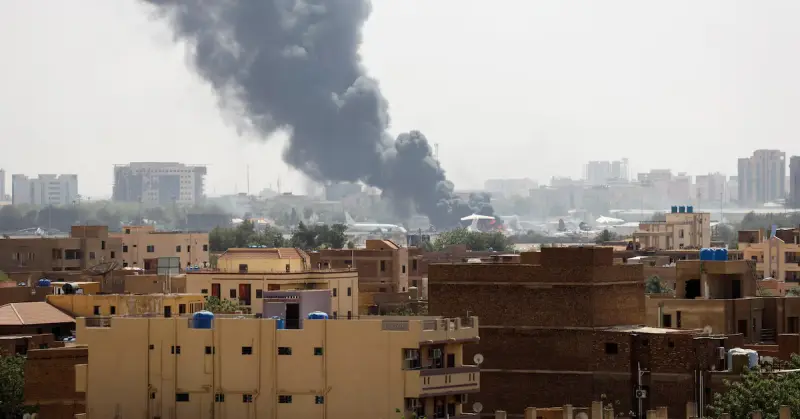Sudan’s descent: A nation torn between hope and horror

From a nation once celebrated for its cultural heritage and agricultural wealth, Sudan now lies fractured by one of Africa’s most catastrophic conflicts.
Khartoum’s transformation from vibrant capital to war-ravaged battleground mirrors Sudan’s collapse, whilst Port Sudan strains under its new role as makeshift administrative centre.
As the conflict approaches its second year, the balance shifts: the Sudanese army advances whilst the Rapid Support Forces (RSF) retreat. Though the army has reclaimed Omdurman, fierce combat continues across the Nile and throughout southern Khartoum. Military gains in North Kordofan, including Umm Rawaba’s recapture, stand in sharp relief against Darfur’s deepening humanitarian crisis, where ethnic violence escalates unchecked.
Official communiqués tell opposing stories—the army heralds victory, the RSF speaks of strategic withdrawal—yet the war’s true measure remains its devastating human toll. Nine million displaced Sudanese endure crisis conditions, crowding into Port Sudan’s makeshift shelters or risking treacherous border crossings to neighbouring nations.
Port Sudan, thrust into its role as de facto capital, buckles under failing infrastructure. Drone strikes on the Merowe Dam have left the city in darkness, whilst residents struggle with brackish drinking water and soaring prices. The city has become less a sanctuary than a waiting room for those wondering where to flee next.
In Darfur, the violence takes an even darker turn as militias target civilians solely for their ethnic features and tribal identities. Healthcare’s collapse has left the wounded and sick without even rudimentary medical attention.
Beyond the immediate conflict lies an equally daunting challenge: how to rebuild a shattered nation, repatriate millions, and recover lost years of education. Analysts now warn of a potential permanent split: a military-controlled north facing an RSF-dominated Darfur.
A people who once demanded democracy and justice now struggle simply to survive and preserve what remains of their nation. As regional powers turn their country into a battleground, even modest hopes for peace fade from view.
The question is no longer who will win, but whether Sudan itself can survive—or if the nation has already fractured beyond repair.
Originally published in Arabic in Lebanon’s Annahar newspaper, written by Hatem Al-Batyawi.
How to submit an Op-Ed: Libyan Express accepts opinion articles on a wide range of topics. Submissions may be sent to oped@libyanexpress.com. Please include ‘Op-Ed’ in the subject line.
- Türkiye advances World Bank talks for Bosporus railway - March 29, 2025
- Libya PM meets UAE president in Abu Dhabi - March 29, 2025
- Israel threatens to expand Gaza offensive if Hamas doesn’t release hostages - March 26, 2025


